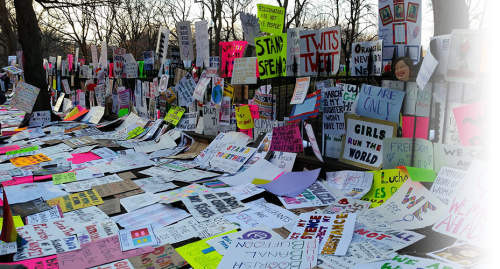
Types of Expressions
The resources on this Module explore the nature and extent of freedom of expression through a focus on specific speech or speakers, such as political speech, art, or protest. The readings will demonstrate the existence of a range of standards regarding their protection and regulation, largely enshrined in many regional and country practices, although not all.
